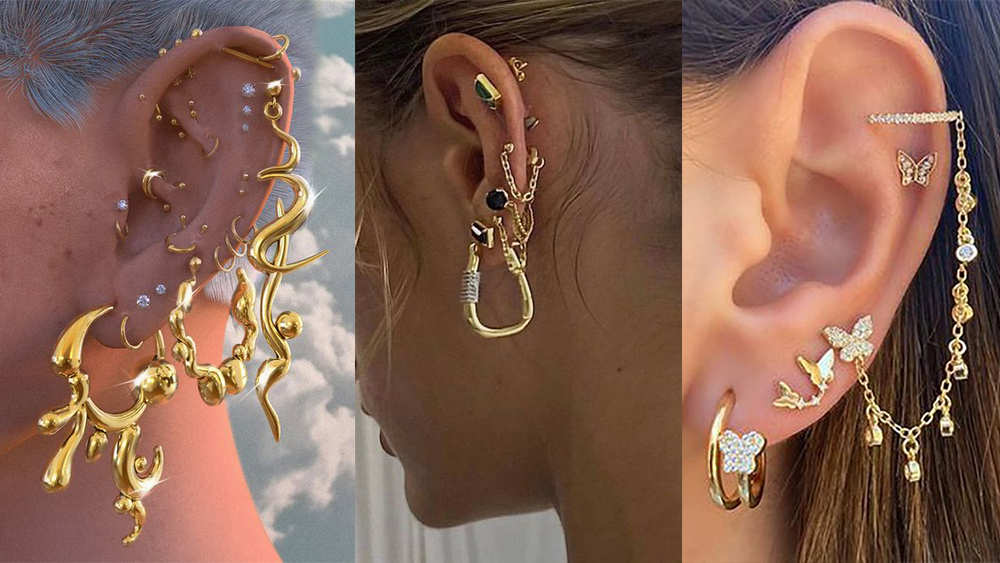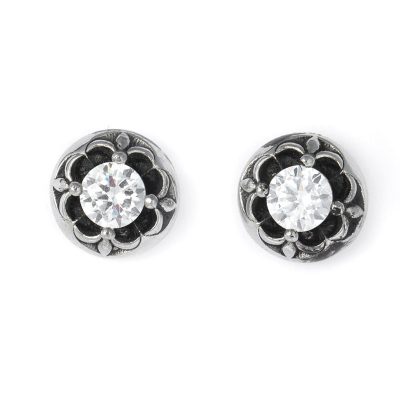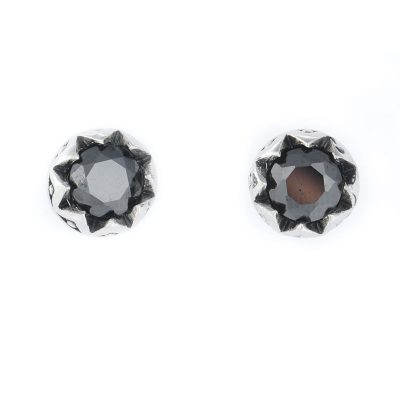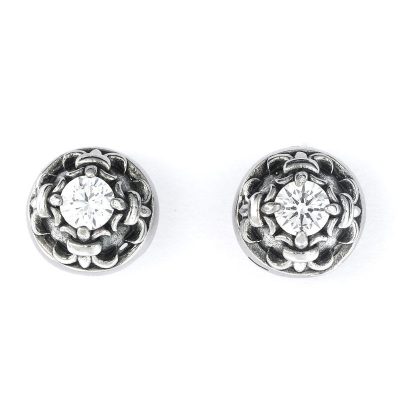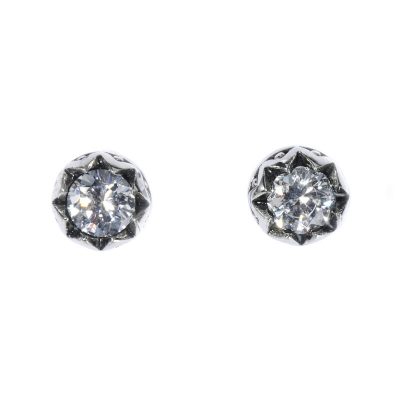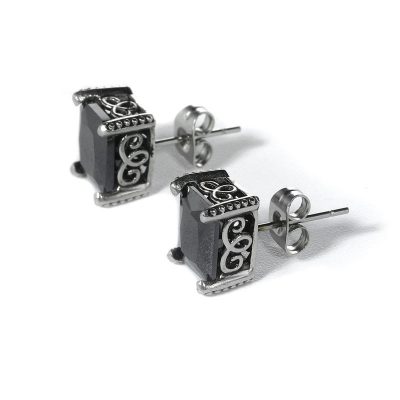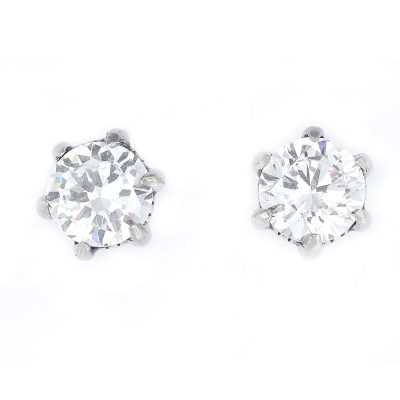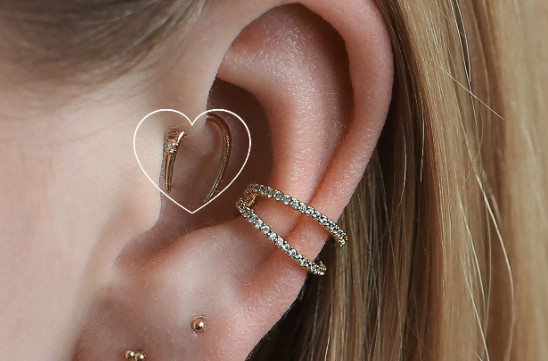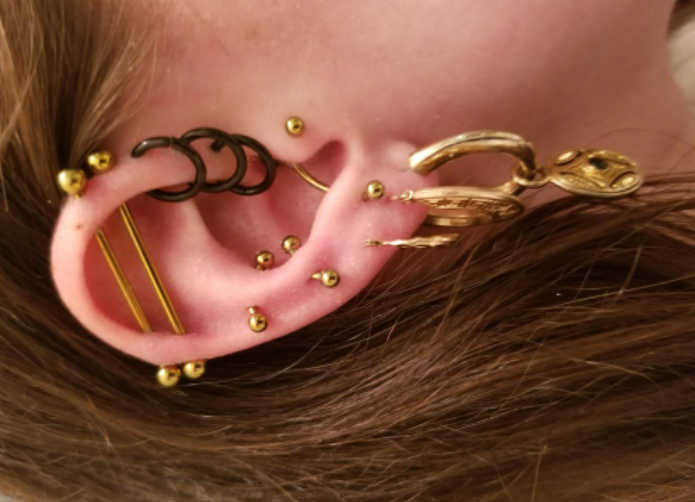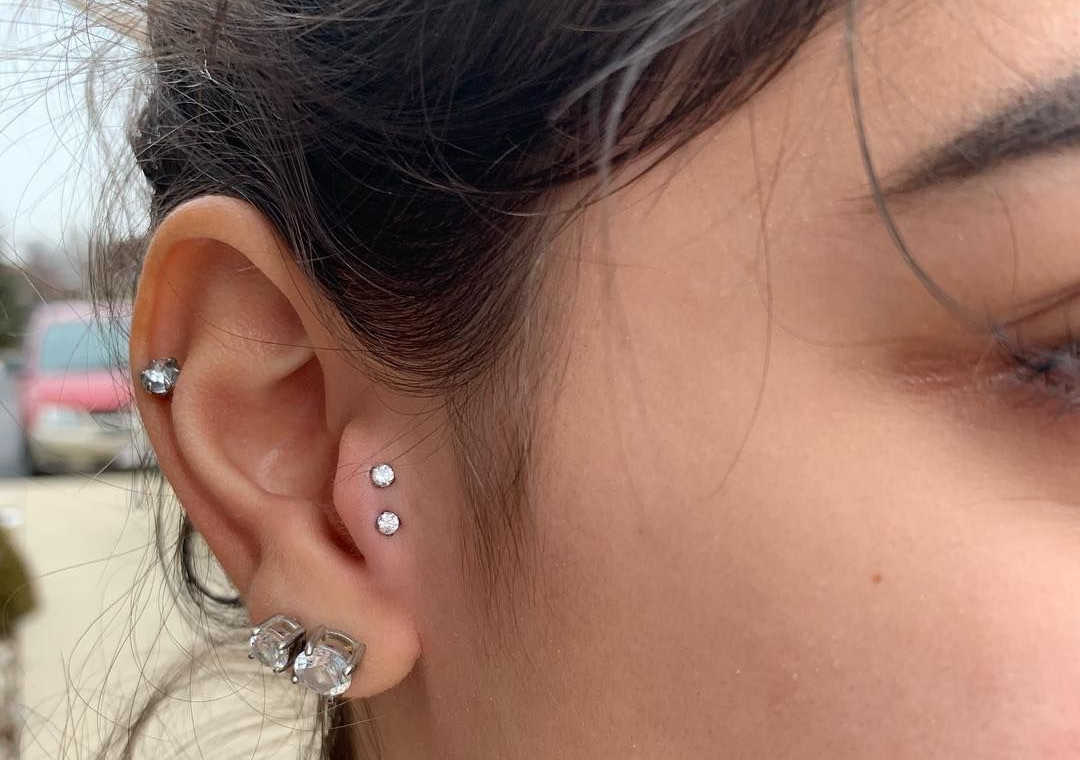This smelly affair called “ear cheese” comes with disgusting brownish-gray gunk that collects your earring backs, especially the clear plastic types. So, if you have been wondering why your ears smell like stinky cheese, this might be the problem.
For obvious reasons, women are affected the most by this problem. After all, 72 percent of all pierced people in the U.S. are women.
Considering that many people get pierced as kids, ear cheese should be a concern for practically all of society. It might be an embarrassing problem, but we have no option but to address it before things get out of hand.
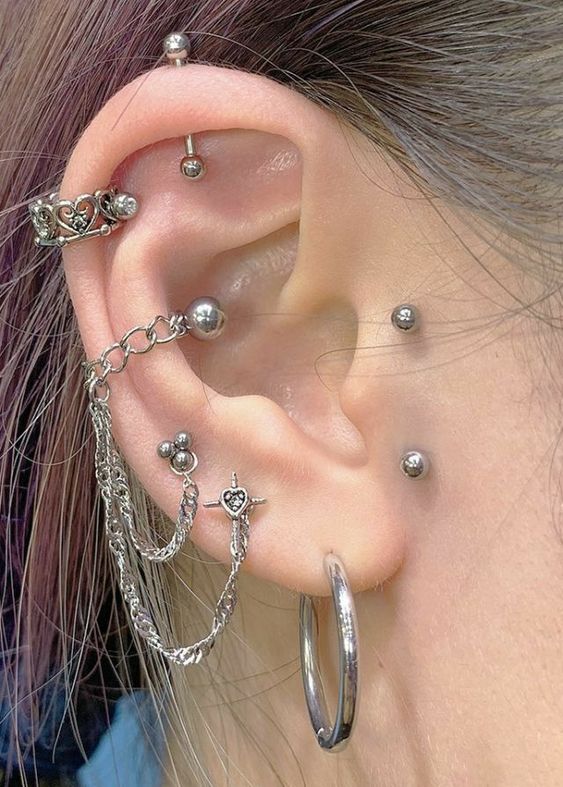
Why do earrings get dirty?
Earring posts can accumulate retained skin oils that help yeast, fungus, and bacteria overgrow. Ciraldo. You might think a simple shampoo in the shower is enough to wash away that gunk, but even leftover hair products can build up around the earring post and accumulate in and around that tiny earring hole.
What is Ear Cheese? What Does Ear Cheese made of?
Ear cheese is the buildup of dead skin cells, sebum, hair, and beauty products you might be using behind your ear lobes. The deposit tends to turn into a greenish-brown paste with a characteristic bad smell due to bacterial buildup.
That is what makes it smell like stinky cheese.
You can find out if you have this problem by rubbing your finger behind your ear to see if it smells like cheese, sweat, or something else.
Bacterial, fungal, and yeast infections can also cause this kind of smell because they like warm and moist places. This can happen when you keep touching the area with dirty hands, wear sunglasses, or have an infectious discharge coming out of a recent piercing.
Usually, infections are accompanied by other symptoms such as itching or pain.
Earwax can also make its way to the skin behind the ear and cause this unpleasant smell. Similarly, conditions like dandruff, eczema, seborrheic dermatitis, and rashes can also make your ear lobes stink.
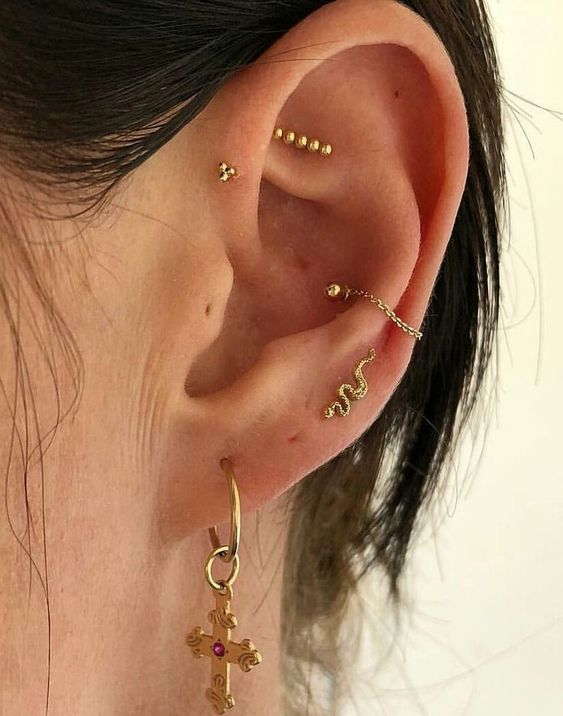
The Reason that you will get Ear Cheese
Although ear cheese smells terrible, there is nothing particularly unusual about it. You can even think of it as a natural part of getting your ears pierced.
However, people who have just recently had their ears pierced are at a higher risk of getting ear-cheese than everyone else. Such people are usually still reacting to the procedure and producing additional skin cells.
Similarly, if you rarely take off your earrings, or if your piercings are stretching out, then you are more likely to encounter this problem.
As you know, the body replaces skin cells all the time, and when they build up, they will obviously not smell too good.
So, if you don’t clean up your ear properly, you can get ear cheese. However, poor hygiene is not entirely to blame since cleaning the ears is a little more complicated than washing the rest of the body.
When most people get in the shower, they forget about the ears. Unfortunately, ears also have sweat glands, sebaceous glands, and dead skin cells.
These secretions and deposits can leave your ears with an awful smell. The problem is worse for people with overactive glands and those more prone to acne.
Things that can worsen this problem include long hair, wearing scarves, putting on hats, using cosmetics, applying too much hair product, and wearing earmuffs.
Why do my ear piercings smell bad?
Most of the root causes of a bad smell behind the ears come down to excessive secretions, hygiene, infection, or a combination of the three.
Secretions and hygiene
It’s easy to jump in the shower, wash the most obvious and prominent areas of your body, and forget about the tiny spots behind the ears.
After all, it doesn’t necessarily seem like a place that sweats or gets dirty easily. So, neglecting to wash there thoroughly might be the cause of odor behind the ears.
Sweat glands are found all over the body, including behind the ears. They secrete perspiration that begins to smell when it comes in contact with bacteria and oxygen.
Sebaceous glands are also found wherever there’s skin. They secrete sebum (oil), a mix of wax and fats that can smell bad. The overlay of the ear, along with the folds and grooves behind it, makes it easy for all these substances and their smells to hide and build up.
This is especially the case if you have overactive glands that secrete more than the average amount of sweat or sebum. If you have acne, there’s a very good chance you have overactive glands.
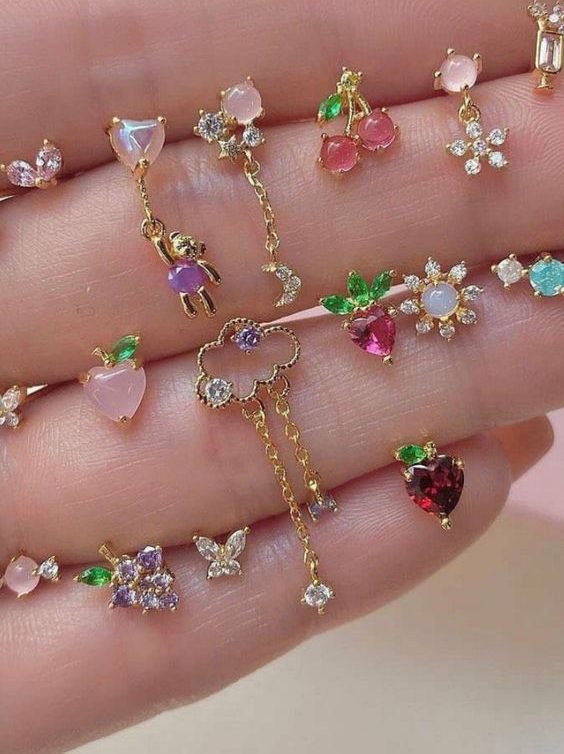
Pollution and physical barriers
Substances can build up along the hairline and behind the ears, leading to unpleasant smells. These substances can include:
- the smoke of any type
- hair products
- automobile fumes
- other forms of pollution and debris
The following can also clog the pores behind your ears or trap bodily secretions that amplify odor:
- long hair
- scarves
- earmuffs
- hats
- cosmetics
- hair product residues
- Infection
Infections often cause a cheeselike smell. Bacteria, yeast, and fungi are most often to blame. This is because they like warm, moist places.
Bacteria, yeast, and fungi can grow behind the ears due to:
- scratching the area with dirty hands
- wearing eyeglasses
- having infectious discharge stemming from an ear piercing or possibly an external ear infection
- Especially moist conditions and skin irritation can make matters worse
If you’ve experienced itching, pain, or drainage from your ear, this could indicate an ear infection affecting the ear canal. Sometimes, even if the infection inside the ear canal has cleared, bacteria or fungi might remain trusted Sources. This can cause a cheeselike smell behind your ears.
Earwax
There are many sweat glands inside the ear that help form earwax. Tiny bits of this wax might also make their way out of the ear and onto the skin behind it.
Earwax is a sticky substance that can be quite smelly, even in barely noticeable quantities.
Other skin and scalp conditions
Dandruff, eczema, seborrheic dermatitis, and frequent sensitivity rashes can all cause dry, irritated skin. This alone can weaken the skin, but it also prompts you to scratch. That makes your skin even more vulnerable as you introduce bacteria and pollutants to the area.
Emotional or physical stress can increase the desire to scratch, further promoting these conditions.
Why do my earrings smell like cheese?
Ear cheese is a natural part of having pierced ears and it’s caused by a build-up of oil and dead skin cells you’ve shed. If your piercing is newer, you’re more likely to experience a smell because your body may still be reacting to being punctured.
Why does ear cheese smell so good?
Your body secretes a substance called sebum as part of its normal everyday work. Sebum is secreted by the sebaceous glands in the skin. … Mix sebum with some dead skin cells and a few bacteria, and you get some really potent smelling piercings! The discharge is semi-solid and smells like stinky cheese.
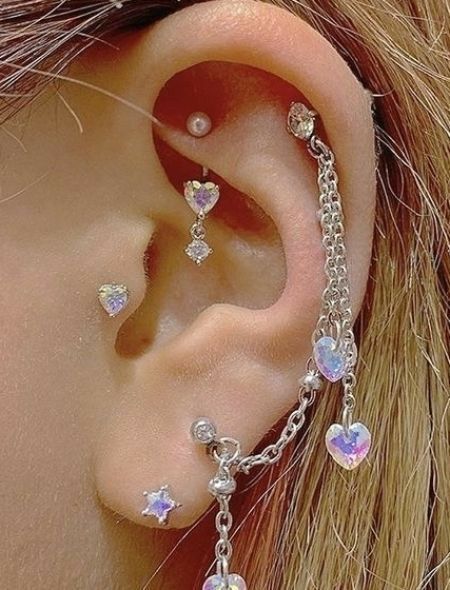
How do I stop cheese in my ears?
Wash behind the ears during every bath or shower. People with sensitive skin or eczema should use sensitive skin soap, which is available online.
Wipe the area behind the ears with a warm, wet washcloth after intense physical activity.
Keep ear piercings clean. Twist and rotate the piercings in a circle several times each day. Do not take new posts out until at least 6 weeks after piercing. Children who are too young to clean their ears must receive adult help.
Gently exfoliate the area behind the ears once or twice per week. This prevents dead skin from building up. An exfoliating wash or rough washcloth can help with this task. People with skin conditions should discuss exfoliation with a doctor before trying it.
Do not ignore a bad smell, even if there is no pain. A bad smell may be a warning sign of an infection or other problem, so it is best to see a doctor.
How to remove Ear Cheese?
If you have been grappling with the ear cheese problem, today is your lucky day because there are lots of ways to get rid of this problem. Here are some of your options.
Remove Your Earrings Once In A While
The first step towards getting rid of ear cheese is removing your earring. Wearing your earrings for several weeks at a time can easily cause this problem.
Taking them off can give your ear some fresh air.
However, if you have just had your ears pierced, don’t take off the earrings before seeing an expert. It could be that you just need to disinfect the area with rubbing alcohol.
Clean Off The Ear Cheese And The Jewelry
Cleaning your ears to get rid of the cheese is also an option. All you need is a cloth and some gentle soap.
With gentle scrubbing, you should get rid of all the gunk and exfoliate the dead skin away. If your ears get irritated during the process, you can use some antibacterial ointment.
You should be very careful not to clean your ears excessively. If you damage the skin, you might make them highly vulnerable to infections, which means you will have an even bigger problem to deal with.
To stop the ear cheese from coming back, you have to keep the ears clean and healthy. This involves changing your sheets and pillowcases and washing and rinsing your hair regularly while also making sure no beauty products build upon your ears.
Cleaning your earrings is also important. You should clean them thoroughly and, if possible, disinfect them with rubbing alcohol.
Use Another Set Of Earrings
Although you have the option of cleaning your earrings, you can also swap them for a new set.
For an effective cleaning experience, you should use mild soap and a soft cloth to clean the metal. Obviously, you need to be careful about some jewelry pieces as they are a little delicate.
Otherwise, you might ruin substances like opal or pearl with aggressive cleaning.
If you discover you have this problem, you should avoid large and tight earrings, which are more likely to accumulate sweat and sebum. They also make it harder to clean the ears when taking a shower.
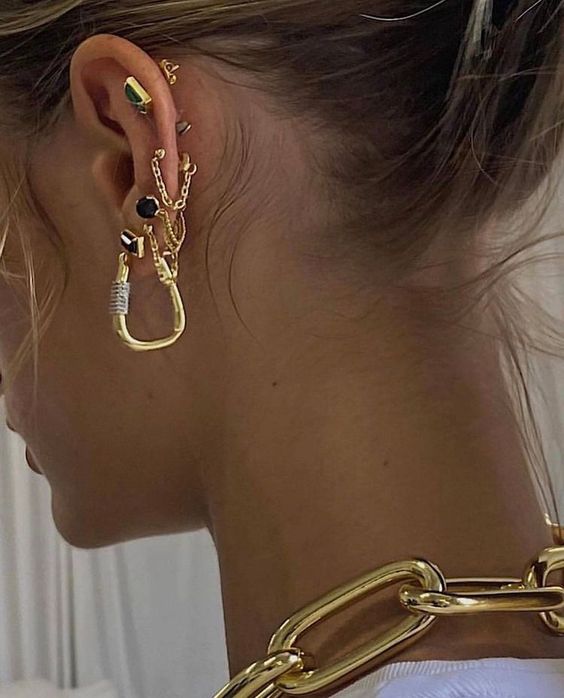
Some people also tend to be sensitive to certain materials used to make earrings, which could cause the skin to react by producing secretions or discharges due to itchiness and tenderness. In such cases, you should opt for hypoallergenic earrings, such as wooden earrings.
However, note that it is usually normal for new earrings to cause some redness and some crustiness.
- Use Medicated Skin Creams
If you discover that cleaning and disinfection are not working as well as you had hoped, you can use medicated skin creams. Before you take this step, it might help to talk to your doctor so that you can get help deciding whether to get an antibacterial or antifungal cream. - Reduce Sweating
Excessive sweating might be the reason your ears are smelling. If you suspect this to be the issue, you can try using baby powder, antiperspirant, or a stick deodorant. - Use Ear Drops
If you think your ear cheese problem has something to do with excess earwax, then you should get ear drops and deal with the problem. - Treat The Infected Injury
An infected injury such as a cut, a pimple, or a scrape can happen behind the ear and result in swelling, pain, or discharge. The accumulation of this discharge can result in a foul odor.
You should see a doctor about such a problem, especially if it is accompanied by intense pain and discharge.
How to Treat the ear cheese?
You may get rid of a bad smell behind the ears by simply treating its cause.
Cleansing and circulation
Gently scrubbing and washing the area daily may eliminate the odor very quickly.
Keep your lower scalp, ears, and upper neck clear of pore-clogging products and uncovered by hair or clothing, too. Be vigilant in hot, humid weather or after intense physical exercise.
Disinfecting
Rub alcohol or hydrogen peroxide on the area behind the ears, especially after ear piercings. Be sure to follow your piercer’s directions for aftercare.
Disinfect and clean earrings regularly as well.
Medicated skin creams
If cleansing and disinfecting alone don’t help alleviate the smell, you may need something more targeted to the specific underlying cause.
Talk to your doctor to help determine the cause. They can also recommend whether antibacterial, antifungal, or anti-inflammatory creams, including hydrocortisone, might help with treatment. Your doctor may give you a prescription.
A pharmacy can also advise on which over-the-counter ointment might be best for you.
Sweat reduction
If excess sweat is causing the smell behind your ears, clean the area with a damp cloth or fragrance-free wipe after exercising or being out in the heat.
Consider keeping the area dry as well. To do this, try using one of the following:
- baby powder
- antiperspirant
- stick deodorant
- Acne medication
When your glands secrete excess sebum, acne may develop. You can unclog pores and dry up excess sebum behind your ears by using:
- retinoids and retinoid-like topicals
- salicylic acid
- azelaic acid
- Minimize pollutants and barriers
Consider cutting your hair away from your ears. Wash hats, earmuffs, scarves, and pillowcases often.
Avoid using hair and skin products close to the ears to see if any one of them is contributing to the smell behind your ears. Stop each product one at a time. If you stop them all at once, you won’t necessarily know which one, if any, is causing an odor.
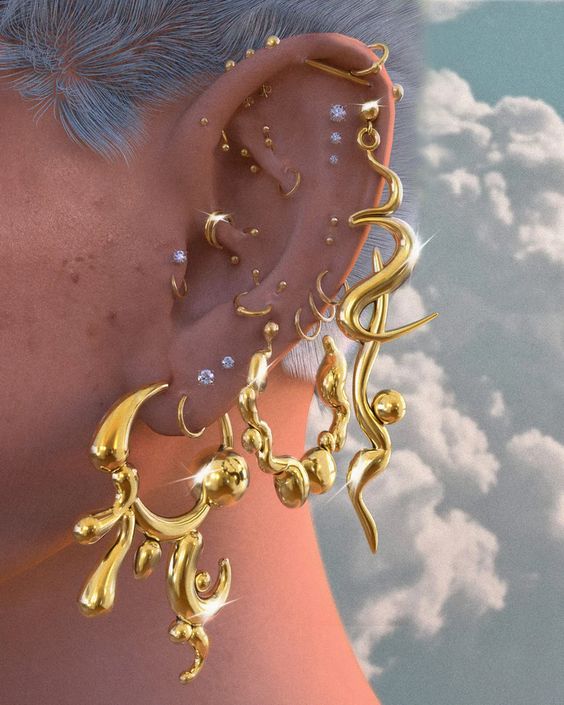
Medicated shampoo
If your skin seems to be very dry and flaky rather than oily and clogged, shampoos containing zinc pyrithione may help. These shampoos can reduce eczema, seborrheic dermatitis, and various infections that thrive in more arid skin conditions.
If you only have dry skin, protecting the area with a protectant like petroleum jelly might help.
Ear drops
If you suspect the remains of a previously treated ear infection or excess earwax might be to blame for the smell, discuss ear drops with a doctor or pharmacist.
Essential oils
Essential oilsTrusted Source might do double duty when it comes to reducing odor behind your ears. They may help soothe and heal the skin while also offering a pleasant smell to counteract any bad ones.
Some essential oils to consider include:
- tea tree
- peppermint
- grapefruit seed
Be sure to dilute the essential oil in a carrier oil to avoid irritating your skin.
Ten articles before and after
Is sterling silver hypoallergenic?
Does Brass Turn Your Skin Green?
Is Stainless Steel Or Surgical Steel Better For Earring Piercings?
Which type of nose ring is best for big nose?
How Long Does It Take For A Piercing To Close?
Tips For Keeping the Pregnancy Belly Ring
What Jewelry Can You Wear in the Shower?
